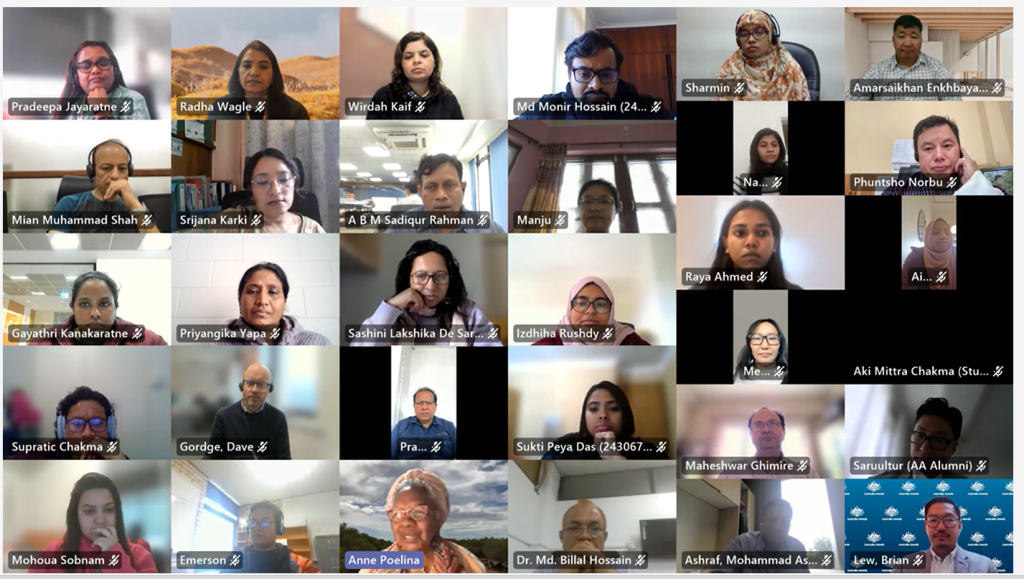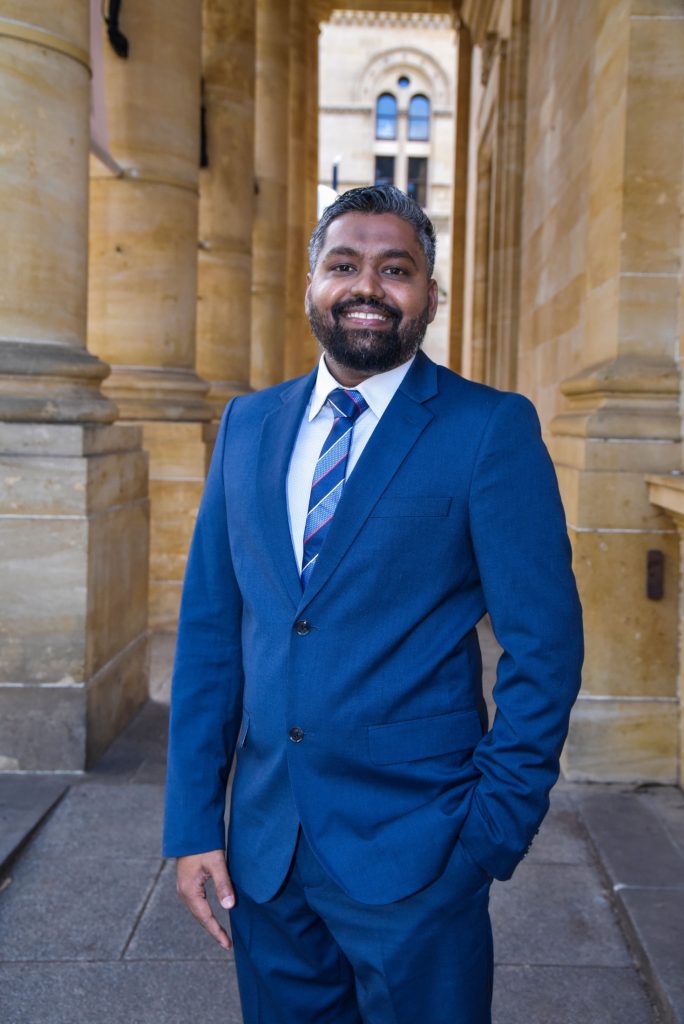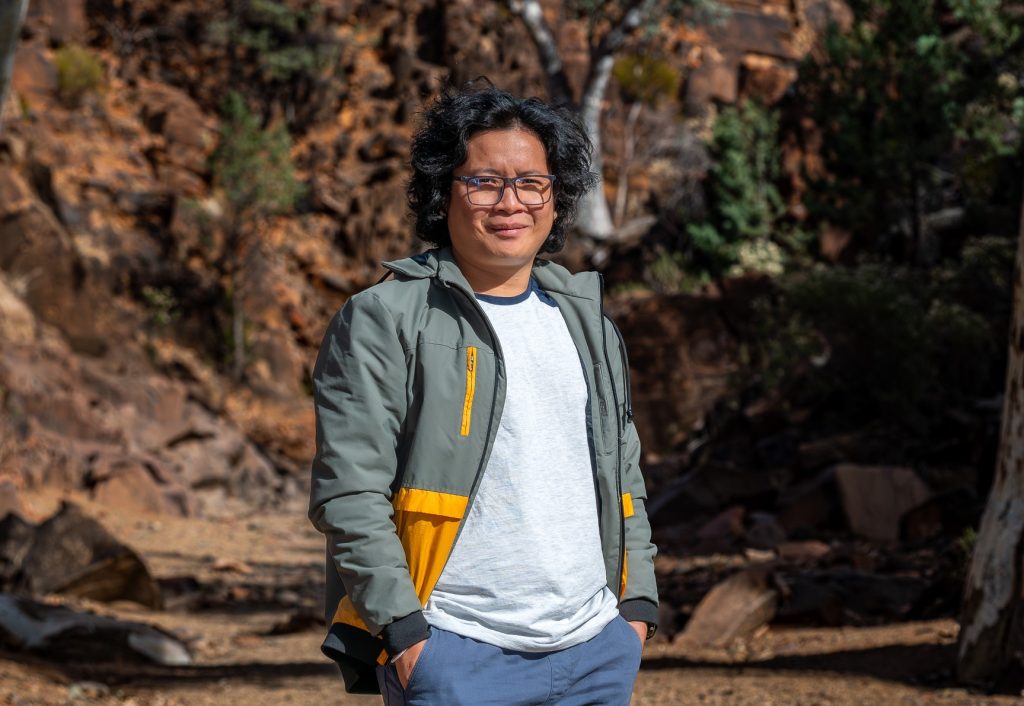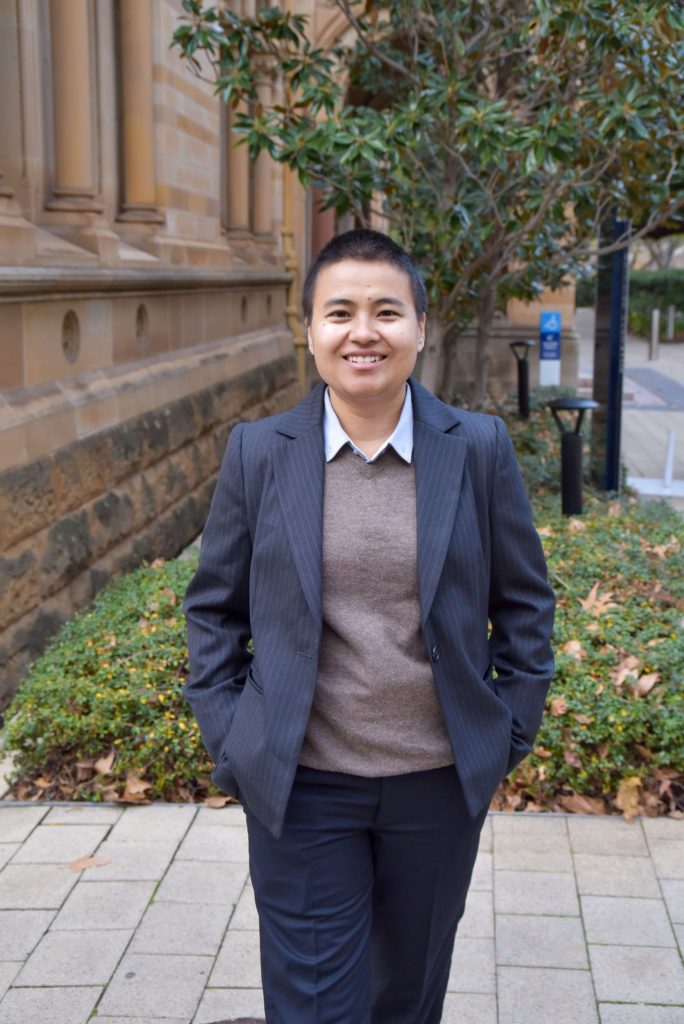Scholars and alumni hear about importance of Indigenous knowledge
Posted: 11 August 2025
In the lead-up to the International Day of the World’s Indigenous Peoples on 9 August, over 120 Australia Awards scholars and alumni from South Asia and Mongolia attended an online seminar featuring Professor Anne Poelina, a proud Nyikina Warrwa woman from the Kimberley region of Western Australia.
Professor Poelina is an expert in the connection between Indigenous knowledge and environmental management. Among her many roles, she currently serves as Chair of Indigenous Knowledges at the Nulungu Research Institute at the University of Notre Dame. The Kimberley-based institute fosters collaboration between Aboriginal and non-Indigenous researchers with extensive practical and theoretical expertise. Professor Poelina is also a community leader, human and earth rights advocate, writer, film maker, and respected academic researcher.

Australia Awards scholars and alumni participating in the online seminar, listening to insights shared by Professor Poelina.
Professor Poelina’s remarks highlighted that Indigenous people in Australia focused on the collective wellbeing of the community and the environment, rather than the individual. This approach was guided by First Law, the law of the land and her ancestors. “In my culture, in my Country, we had a law of the land before we were invaded and colonised, and that law still stands,” she said. “That law is about values, ethics [and] virtues.”
Drawing on reports from the International Union for Conservation of Nature, Professor Poelina noted that Indigenous people across the world hold deep, holistic relationships with the environments in which they live. She called for greater recognition of Indigenous wisdom about environmental management in decision-making as part of a collective approach to governance. Using the example of climate change, Professor Poelina said, “We must understand that the most marginalised in our communities will be impacted by this and we need to find a way of bringing Indigenous wisdom, Indigenous thinking into this [responding to climate change].”
Noting the economic disadvantage faced by First Nations people, Professor Poelina said that she was currently researching how Indigenous people could be rewarded economically through a nature-positive market for their custodianship of the environment. “These lands, these waters, these natural resources, are still very much under our guardianship,” she said. “How do we get recognised for that investment of holding the lands, the waters, the environment in the state that they currently are?”
When asked what motivates her to continue with her career and her advocacy, Professor Poelina’s conviction was clear. “This is not a job for me. This is my destiny,” she said. “I was born into this role as an Indigenous leader, and I have taken [it] up and become brave and pushed the boundaries.”
Drawing on Brazilian writer Paulo Freire’s work Pedagogy of the Oppressed, Professor Poelina advocated for dialogue, collective action and a shift from individualism to community wellbeing—guided by values of respect, reciprocity and responsibility.
Professor Poelina delivered a challenge to the participants to help improve the situation for Indigenous people around the world and amplify their voices. “It’s going to take the ‘we’, not the ‘me’, to transform our life circumstance and create opportunities so we can ensure Indigenous people reach their full potential and have a good life and understand what it is to have true meaning and value in the world.”
During the session, Mian Muhammad Shah, alumnus from Pakistan, shared his experience working with the Kalasha community through the Sarhad Rural Support Programme. “We’ve worked closely with the Kalasha people for over 15 years, using their local wisdom to support development without compromising their cultural way of life,” he said. He highlighted recent efforts such as digital marketing training for Kalasha women, blending traditional and modern skills to promote sustainable progress.
Participants expressed their appreciation for the insights shared. Mohamed Nimal, a scholar from Maldives, reflected, “Professor Poelina’s thought-provoking insights reminded me that as a future occupational therapist, cultural awareness must come from listening to and learning with Indigenous peoples. Her call to be ecological, not ‘EGOlogical’, challenges us to engage humbly and meaningfully in cross-cultural understanding, to provide holistic care.”

Scholar Mohamed Nimal from Maldives.
Supratic Chakma, a scholar from one of Bangladesh’s indigenous groups, the Chakma, added, “Listening to Professor Poelina was truly inspiring and deeply enriching. It’s such a privilege to know her multifaceted contributions to local and global indigenous communities reflect a profound and powerful commitment to Indigenous knowledge and wisdom.”

Scholar Supratic Chakma from Bangladesh.
Scholar Rita Baramu said, “I deeply resonated with my own experiences as a Baramu indigenous woman from Nepal, in relation to First Nations peoples, in understanding how colonialism continues to shape our lives through capitalism and imperialism, making them very challenging. This also prompted me to re-reflect on the importance of movement-building and solidarity among indigenous communities in resisting systemic oppression and marginalisation and currently the effects of climate change.”

Nepali scholar Rita Baramu.
The seminar served as a powerful reminder of the importance of indigenous voices in shaping inclusive, sustainable futures—and the role of cross-cultural collaboration in achieving lasting change.
Feature image: Professor Anne Poelina